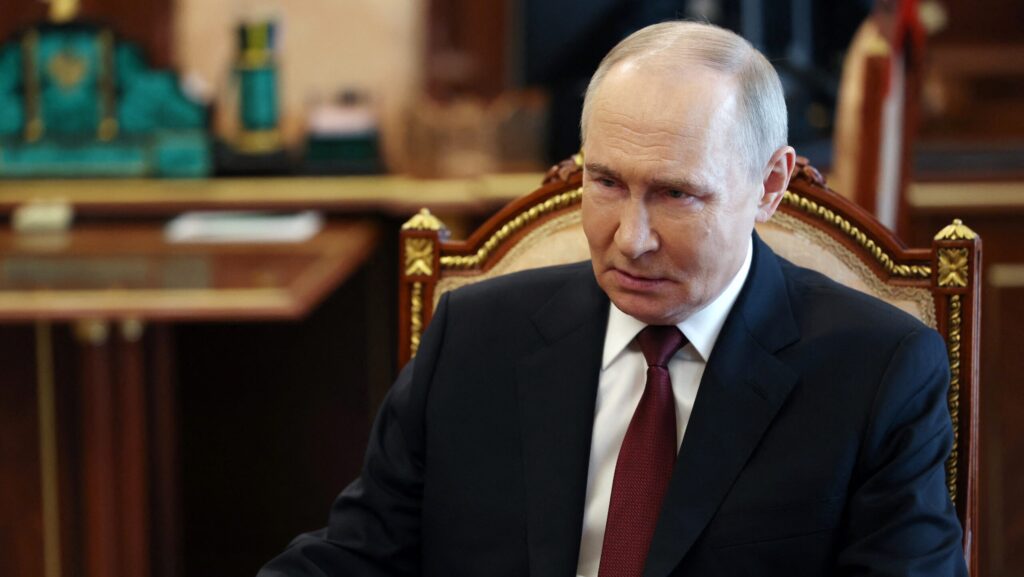Ukraine’s accession to the European Union has become a major campaign issue in Hungary, even though the next parliamentary election is still a year away. Hungarian opposition leader Péter Magyar posted a video on X, featuring Hungarian Prime Minister Viktor Orbán speaking about the government’s position on the matter. In the clip—originally recorded in 2016—Orbán asserts that Budapest fully supports Kyiv’s EU bid, adding: ‘We see a Europe in which Ukraine is a full member.’ Magyar arrogantly captioned the post: ‘Do you ever tell the truth, Comrade Prime Minister?’
Magyar Péter (Ne féljetek) on X (formerly Twitter): “Szokott néha igazat is mondani, Miniszterelnök Elvtárs?Oszd meg, hogy a palotába is eljusson! pic.twitter.com/ofOS6Nub62 / X”
Szokott néha igazat is mondani, Miniszterelnök Elvtárs?Oszd meg, hogy a palotába is eljusson! pic.twitter.com/ofOS6Nub62
However, it later emerged that the video had been manipulated. It was taken out of context, giving the impression that Orbán and the Hungarian government had radically changed their stance on Ukraine’s membership. The complete statement, delivered at a joint press conference with then-Ukrainian Prime Minister Volodymyr Groysman, was as follows:
‘I would like to make it absolutely clear that Hungary supports Ukraine’s membership of the European Union. It is true that this issue is not on the agenda today, because until we reach the stage where we can talk about Ukraine’s membership, we still have to climb a few more steps. But we would like to make it clear that when we take these steps, we will see a Europe in which Ukraine is a full member.’
Contradicting Statements
Kyiv’s EU accession has become a central topic in Hungarian public discourse, especially after early March, when Brussels—alongside several Baltic and Nordic EU member states—began to increase political pressure for Ukraine’s fast-track membership. This would mean that a country currently at war could become a full EU member by 2030. While such a scenario is entirely unrealistic in practice and would significantly undermine the EU’s financial and cohesion mechanisms, it could still become a reality if there is enough political will in Brussels.
Orbán has taken a firm stand against such an accelerated accession process, pointing out that the war has already cost EU member states billions of euros. Admitting a country of Ukraine’s size, he argues, would drain cohesion funding and could even turn countries like Hungary into net contributors.
This week, the Hungarian government launched a public vote on Ukraine’s EU accession, set to conclude in early June. Orbán has pledged to veto every decision related to Kyiv’s bid until the Hungarian people have had their say. Meanwhile, Magyar and his Tisza Party initiated their own public consultation with voters, featuring 12+1 questions—the ‘plus one’ concerning Ukraine’s accession. While most of the questions received a positive response rate well above 90 per cent, responses on the Ukraine issue were more divided. That said, more than 58 per cent of Tisza voters expressed support for Ukraine’s EU membership.
Why does this matter? Péter Magyar described the consultation as the ‘cornerstone of a future Tisza government’, implying that its results will form the basis of the party’s programme in the event of a change in government. In doing so—not only in the case of Ukraine—he has severely restricted the room for political manoeuvring of his potential administration, subjecting it to rigid and easily accountable boundaries.
Magyar Péter (Ne féljetek) on X (formerly Twitter): "Orbán alól láthatóan kicsúszott a talaj, nem ura a helyzetnek. Minden nap gyengébb számokat kap a Fidesz támogatottságáról, így már a legnyilvánvalóbb dolgokban is hazudni kényszerül, hátha ezzel sikerül még nagyobb gyűlöletett keltenie.Mindenki hallhatta tegnap a TISZA... pic.twitter.com/6iw8NAhSv9 / X"
Orbán alól láthatóan kicsúszott a talaj, nem ura a helyzetnek. Minden nap gyengébb számokat kap a Fidesz támogatottságáról, így már a legnyilvánvalóbb dolgokban is hazudni kényszerül, hátha ezzel sikerül még nagyobb gyűlöletett keltenie.Mindenki hallhatta tegnap a TISZA... pic.twitter.com/6iw8NAhSv9
Although the results clearly indicate that Magyar should support Ukraine’s fast-track accession and vote accordingly in the European Council if he comes to power, he has rejected this conclusion. Contradicting his own promise—a behaviour not unusual for him—he posted on X that Tisza’s official position is to hold a legally binding referendum on Ukraine’s membership once the concrete timeline and accession conditions are known. Nevertheless, this claim is false. Hungary’s constitution does not permit legally binding referenda on matters concerning international treaties in force—a fact Magyar should be aware of, given his law degree.
Responding to Magyar’s post, Fidesz communication chief Tamás Menczer also pointed out that Orbán’s statement is nine years old and predates the outbreak of the full-scale war in Ukraine, making it incomparable to the current situation.
Péter Magyar’s Troubled Relationship with the Truth
Another episode in this saga further illustrates Péter Magyar’s character and his selective regard for truth. Following the publication of Tisza’s consultation results, pro-government influencer Dániel Bohár shared an image of Magyar holding a Ukrainian flag. The image was later proven to be photoshopped—the flag had been lifted from the Wikipedia page on Ukraine’s National Flag Day.
While this manipulation was relatively easy to uncover, Magyar responded with outrage. ‘The Tisza government will criminalize such and similar falsifications, and the Media Authority, which will become independent, will be empowered to shut down the media outlets that publish them,’ he declared in a post on X—just two days before he committed the same ‘crime’ himself, and on a far more serious level. Bohár is an influencer; Magyar is the leader of Hungary’s largest opposition party. The weight of his words is incomparably greater.
Magyar Péter (Ne féljetek) on X (formerly Twitter): "Oszd meg! Van-e hazugabb, aljasabb a Fideszes propagandistáknál? A közpénznyelő megafon hazug Orbán janicsárjai tényleg semmilyen hamisítástól nem riadnak vissza. Pár éve ennél kevesebbért még el kellett volna valakinek tűnnie a közéletből és ha valaki ezt riporterként követi... pic.twitter.com/Co5dS3T505 / X"
Oszd meg! Van-e hazugabb, aljasabb a Fideszes propagandistáknál? A közpénznyelő megafon hazug Orbán janicsárjai tényleg semmilyen hamisítástól nem riadnak vissza. Pár éve ennél kevesebbért még el kellett volna valakinek tűnnie a közéletből és ha valaki ezt riporterként követi... pic.twitter.com/Co5dS3T505
According to his own proposal, Magyar would already be guilty of spreading disinformation. In December 2024, after the fall of Syrian President Bashar al-Assad’s regime, Magyar began disseminating false claims suggesting that Assad’s plane had landed in Budapest and that he was seeking political asylum in Hungary. The rumour, originally published by the government-critical outlet Magyar Hang, gained considerable traction after Magyar shared it. The Hungarian government swiftly denied the allegation, but Magyar never deleted the post. In fact, it remains active more than four months later.
Péter Magyar
Úgy tűnik megbukott és elmenekült Szíriából az oroszok által támogatott, 24 éve uralkodó Bassár el-Aszad, szíriai diktátor. Eközben december 2-án még a Karmelitában fogadta Orbán Viktor II. Efrém...
Related articles:








